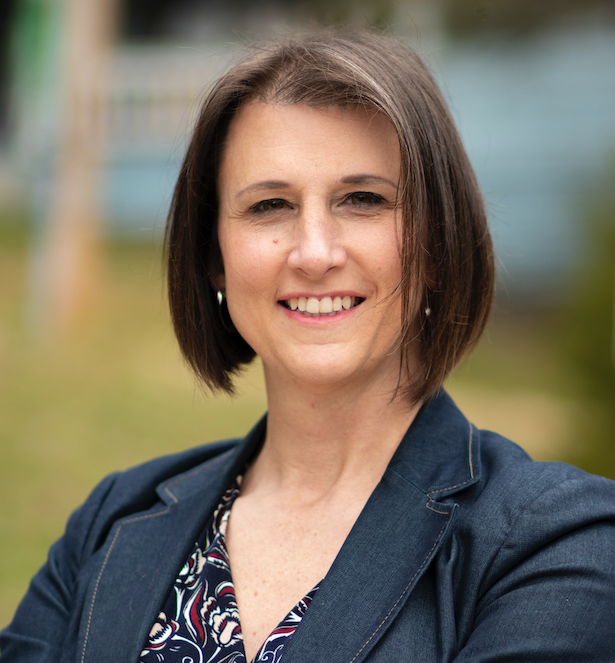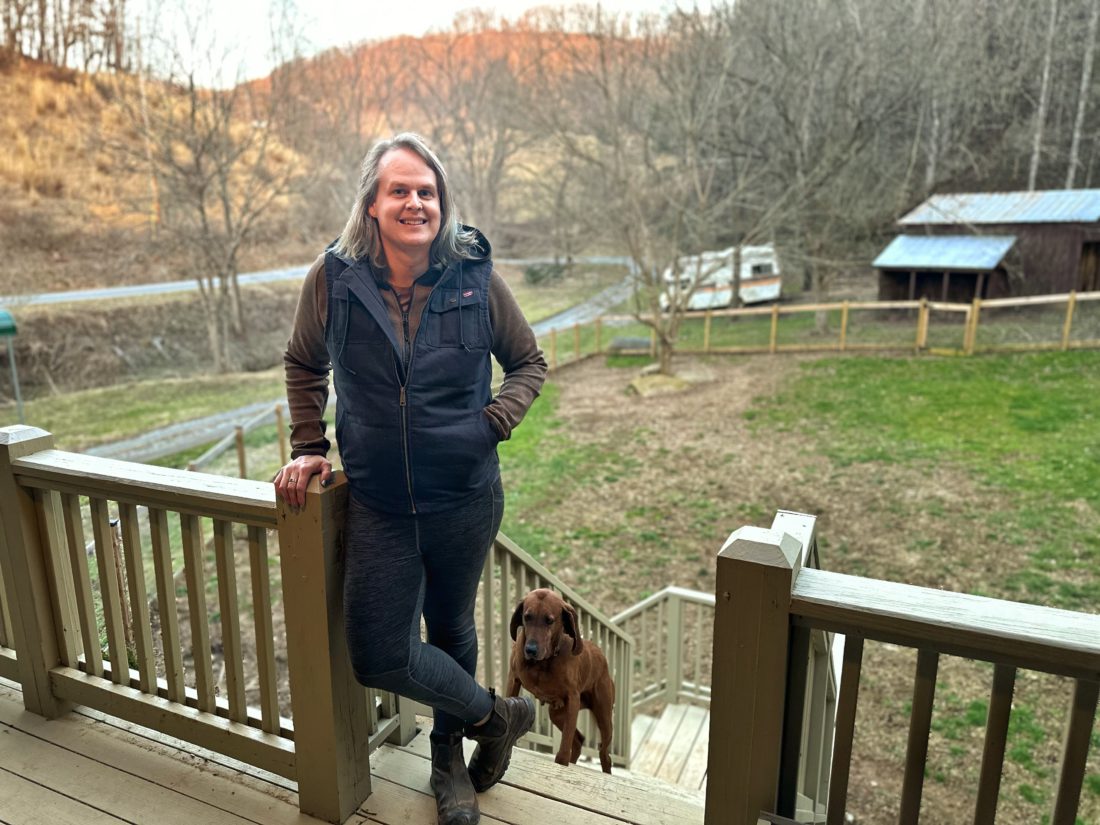The first time that Allison Scott was sexually assaulted in Asheville was at a queer-friendly nightclub.
“I’m dancing on the dance floor, and I’m queer, so I dance with all kinds of different people,” she recalls. A bridal party was dancing, too, and one woman began dancing with Scott, who is transgender.
“It was nothing intimate — it wasn’t that kind of dancing,” she says. “All of a sudden, she grabs me in my crotch. I slap her hand away, and I’m like, ‘What are you doing?’ And she’s like, ‘I want to see what you have down there.’”
Scott began crying and approached the club’s bouncer to inform him of what had happened. “The bouncer was just like, ‘Well, do you want me to throw a woman out for grabbing you?’” she says, mimicking a shrug.
Asheville has a reputation as welcoming individuals of all gender identities and sexual orientations. The city has numerous gender-affirming health care providers, social groups for the LGBTQ community and inclusive arts and culture spaces. Yet the local trans women who spoke with Xpress say they’ve continued to face bigotry in their careers, health care and social lives.
“Elements of Asheville are very welcoming, and I would say it’s done a lot of work over the years,” says Peyton Daisy O’Conner, who has lived in Asheville since age 3. “I don’t want to be harsh, but I don’t know that the reputation that it has for being LGBTQ-friendly fully aligns with the reality.”
O’Conner and her wife moved to Madison County in December after she resigned from the Asheville City Board of Education. The relocation followed O’Conner’s harassment at meetings by an Asheville pastor who is a “local ambassador” for the Arizona-based anti-LGBTQ nonprofit Alliance Defending Freedom.
‘There’s a word for this’
Scott, who is director of impact and innovation for the nonprofit Campaign for Southern Equality, says her earliest childhood memories were realizing she was a girl. At age 16, she learned “there’s a word for this” — meaning transgender — and planned to transition after high school.
Her goal was to attend A-B Tech, work and save money to move out West, which she says had better resources for transitioning than North Carolina. But her plan veered off-course after she decided to marry her high school girlfriend, convincing herself that, in her words, “‘I’m not trans — that’s just silliness.’”
Looking back, Scott realizes she “did not see a viable, healthy path for transgender people” in Asheville when she was a teenager. The transgender individuals she knew at the time struggled to maintain housing and employment, she says.
While continuing to present as male, Scott rose through the ranks at corporations in Asheville. Though outwardly successful, she experienced years of self-harm, suicidal ideation and a suicide attempt, which she says were all connected to her gender dysphoria. In 2013, she experienced what she calls a “breakdown.”
With the help of a therapist who provided gender-affirming mental health care, Scott decided to medically and socially transition. “That’s when the hate really started,” she recalls. “It was brutal.”

The company where Scott worked had a federal contract, and then-President Barack Obama had issued an executive order in 2014 prohibiting federal contractors from discrimination on the basis of gender identity. Yet despite that level of protection, Scott says she eventually left her job in 2018 due to mistreatment.
Upon announcing her transition, Scott met with her human resources department. She shared gender-affirming policies from other companies and offered input on what should be said to inform her colleagues. Still, she says an individual in HR asked her, “‘Wait, so you’re going to come to work dressed as a woman?’” (Scott tells Xpress, “I said, ‘I’m going to come to work dressed as myself, which will completely meet all dress [codes].”)
Some colleagues were accepting, some indifferent. Others began to treat her with hostility. “It would be little things, like the shipping/receiving department would just leave my packages nowhere near my office, like in common areas,” she explains. “Or they deliver everybody else’s [packages] and not mine.”
Scott says multiple co-workers made sexually suggestive comments, including implying she was a sex worker. Some followed her into the women’s bathroom in suspicion, and others made threatening statements suggesting what they would do to her if they found her alone.
“I’d report [the behavior,] and it would get quiet, but nothing punitive ever happened to anyone,” Scott says. She thinks that emboldened the bigoted behavior: “If people see there’s no punishment, then it creates a culture that it’s OK to escalate it.”
Her experience at that job culminated with a written death threat being left in her office, which she says she was asked to investigate. Scott quit after 13 years at the company.
‘Not their first trans patient’
Both O’Conner and Scott say they’ve found gender-affirming health care, including mental health care, in Asheville. However, it took some work.
O’Conner says she has continued to see the same primary care physician since before her transition in 2020. “I was very fortunate to come out to her and also have her be able to manage trans health care and the gender-affirming hormone replacement therapy,” she says.
Scott informed her physician that she would be treated for her hormone replacement therapy by another practitioner but wanted to stay at her primary care physician’s practice for all other health care. “They said, ‘No, I don’t think that would be a good idea — you should find a primary care physician that feels more comfortable treating you,’” she explains. Then she realized, “OK, you don’t feel comfortable treating me.”
Scott also came up against a lack of education about transgender health at her usual pharmacy in Asheville, which led her to switch pharmacies. “I went to pick [my hormone prescription] up at one of the big name-brand pharmacies, and the person on the counter was like, ‘This can’t be right. Why would you be taking estrogen?’” she recalls.
Finding supportive mental health care providers has been a barrier as well. O’Conner says she’s struggled to find a local psychiatrist with a competency in issues facing transgender patients. She drives to Wake Forest every three months to meet with her psychiatrist in person and does telehealth appointments in between.
Scott says she put a lot of research legwork in to find gender-affirming mental health care. “I interviewed therapists,” she says, recalling that many practitioners’ websites lacked details about their experience with transgender patients. “I wanted to make sure that I was not their first trans patient and that they had actually had professional training with trans and gender identities.”
Fitting in
Despite these experiences, O’Conner, who is the executive director of the local harm reduction organization Steady Collective, says she’s been “pleasantly surprised” with some positive experiences of late. In January, she began training as an emergency medical technician in Madison County. “I was nervous about that setting, but so far it’s been super affirming,” she explains. She’s also taking courses in medicine at Blue Ridge Community College and has found support.
She says acceptance from people in the health care fields has fostered a feeling of belonging. “One of the things I’ve been trying to figure out is, where do I fit in,” she says. “Where can I fit in with the least amount of resistance, so I’m not having to struggle every day?”






“All of a sudden, she grabs me in my crotch. I slap her hand away, and I’m like, ‘What are you doing?’ And she’s like, ‘I want to see what you have down there.’”
This sentence in the third paragraph caught me off guard. Totally surprised me.
Up until today, the only mention I have read or heard about those who harass transgender folks are identified as straight, male, white supremacists. Without fail.
Maybe stop getting your news in an echo chamber?
This is very sad. I’m a male to female transgender woman,& it’s bad when we are done like this. My primary care physician said if I mentioned it to him again that he would dump me as a patient. I have to drive over 110 miles to see a physician,& therapist. I’m in Mississippi,& transgender bashing is bad there. Charlotte Deneice
I’ve been living in the Asheville area since 2018. The impression I had before doing so is that Asheville is a trans-friendly city. To some extent that’s true, but not to the extent I was led to believe. I have been deliberately misgendered even though I live full time as a trans female. I’ve been disrespected in some local businesses and at the local VA Hospital. I’ve been mocked, laughed at, and ridiculed downtown. Again, not all businesses and people are disrespectful, and I’ve encountered many who are very kind and friendly. It’s just that if you’re a trans person thinking of moving here, be aware that Asheville isn’t all you may have heard it to be.
Given her track record of conflict, she seems to expect everyone in society to cater to her as if she’s special. Most people don’t care in the least what anyone’s sexuality is, but we don’t want to be forced to walk on eggshells around everyone who might get offended at not being catered to. It’s a minefield for folks who just want to get on with it!
Left Asheville to avoid these bizarre movements of super minority support. Hoping they all move there and start their own sports team and they can play against each other so real women’s rights can be protected.